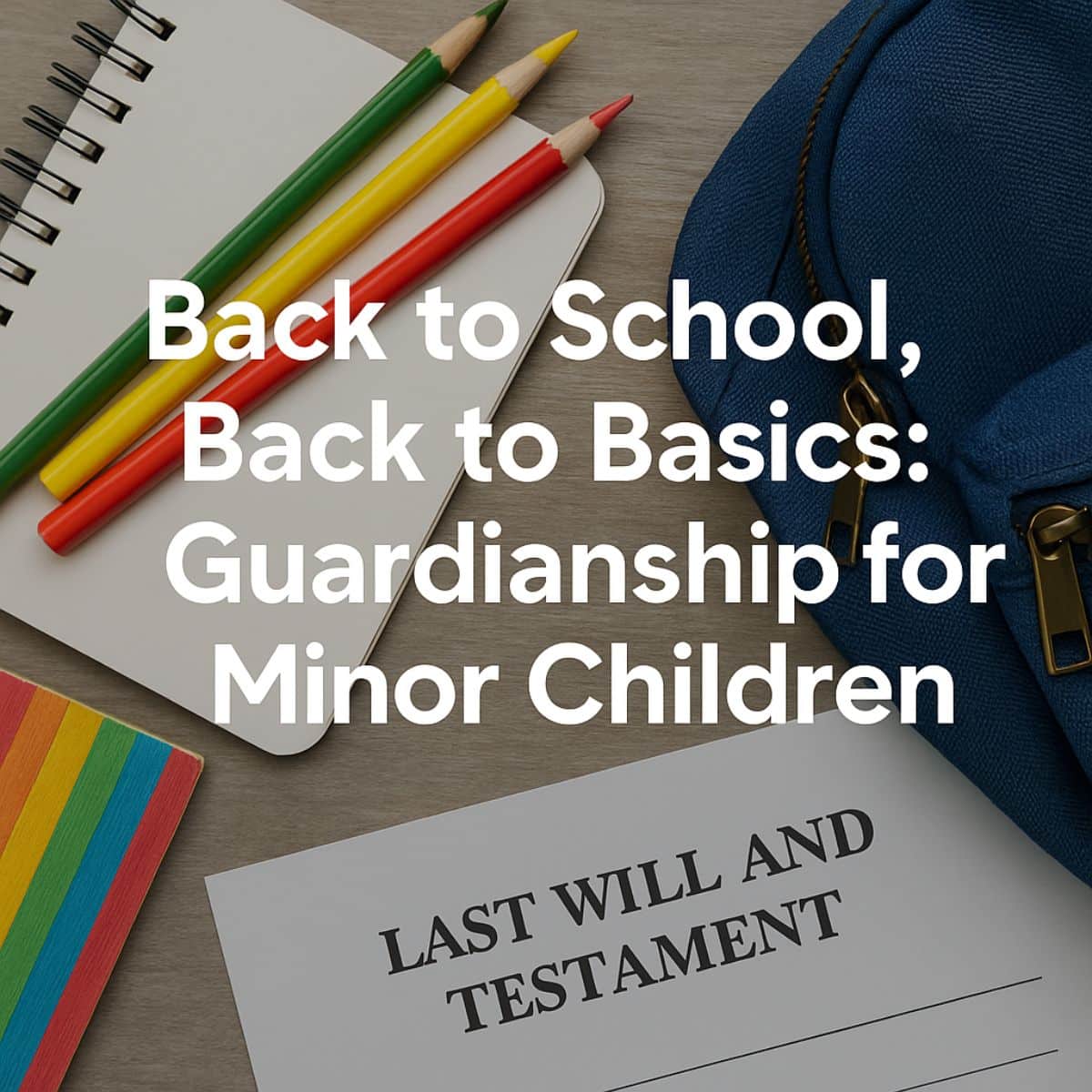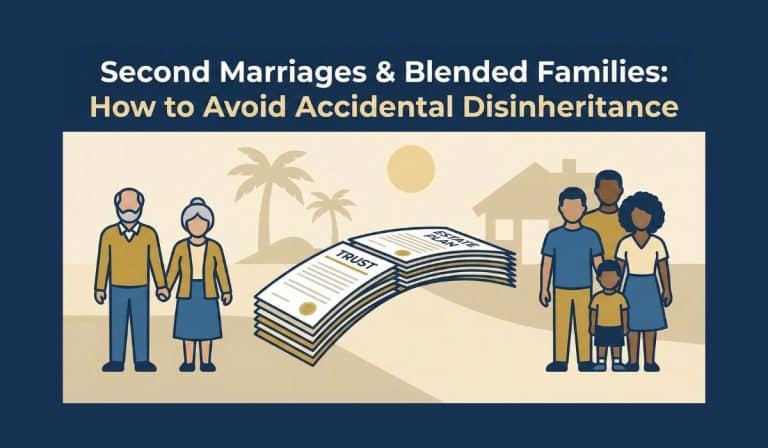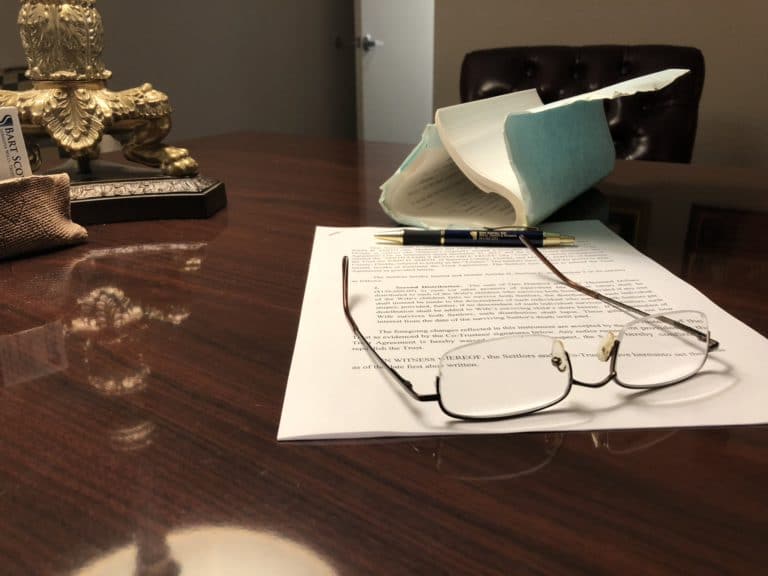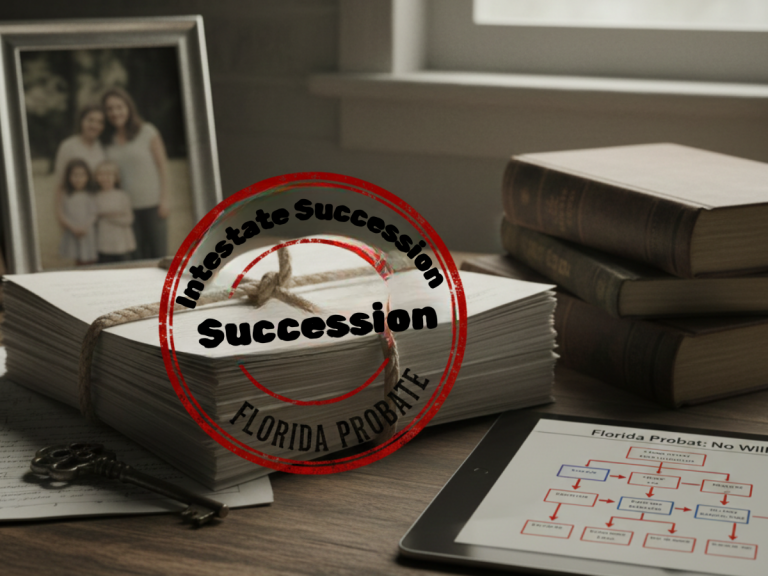Back to School, Back to Basics: Guardianship for Minor Children
By an Estate Planning Attorney Serving Sarasota and Venice areas
As families prepare for the back-to-school season, it’s a good time to revisit the legal protections you’ve put in place for your children, particularly who would care for them in the event something unexpected happens to you. Naming a guardian is one of the most important estate planning decisions parents can make, yet many delay or overlook it entirely.
This article explores the legal tools available to designate guardians for minor children, why updates may be necessary as children grow, and the added considerations for blended families.
Why Naming a Guardian Is Essential
If both legal parents of a minor pass away or become incapacitated without naming a guardian, the decision falls to a judge. While the court will attempt to act in the child’s best interests, it may choose someone you never intended. By clearly documenting your wishes in a valid legal instrument, usually a will, you retain control over your child’s future care.
In Florida, guardianship nominations are generally made in a will, but you can also provide guidance in a separate written declaration.
Florida Statutes Chapter 744 – Guardianship
Tools for Naming Guardians in Florida
An estate planning attorney in Sarasota or Venice can help ensure your guardianship designations are legally valid and clearly expressed. Key legal tools include:
- Last Will and Testament – The most common place to name a guardian. You may also include alternate guardians.
- Pre-need Guardian Designation – A written declaration under Florida law for incapacity scenarios.
- Temporary Guardianship Forms – Used for short-term care, such as when traveling.
For blended families or unmarried parents, special care must be taken to clarify legal rights and prevent custody disputes between biological parents, step-parents, or extended family members.
When and How to Update Guardian Designations
Just as children’s needs change, your estate plan should evolve, too. It’s a good idea to review your documents:
- When children reach a new developmental stage
- After a divorce, remarriage, or birth of additional children
- If a named guardian’s situation changes (e.g., relocation or health issues)
An estate planning attorney in Venice or Sarasota can assist with revising your will or other instruments without disrupting your full estate plan.
Blended Families: Clear Language Prevents Conflict
In blended families, competing interests may arise between biological and step-parents or grandparents. Clarity is crucial. Without specific language in your will or trust, guardianship decisions could become contentious.
Best practices include:
- Naming both primary and alternate guardians
- Including a letter of explanation to courts (not legally binding but influential)
- Coordinating nominations with other legal parents or caregivers when possible
Legal Guidance You Can Trust
I am an experienced estate planning attorney who serves families throughout Sarasota and Venice, offering tailored strategies to safeguard your loved ones’ futures. I am here to help you:
- Draft or update your will to include guardian nominations
- Review guardianship options under Florida law
- Navigate unique challenges in blended or non-traditional families
Sarasota Estate Planning Services
Venice Estate Planning Services
Final Thoughts
The start of a new school year is a reminder that life moves quickly, and that your legal documents should keep pace. By working with a knowledgeable estate planning attorney near Sarasota and Venice, you can make sure your children’s future is secure, no matter what happens.
If you haven’t named a guardian or it’s time to update your plan, contact us today for a confidential consultation.
Disclaimer: This blog post is for informational purposes only and does not constitute legal advice. For guidance specific to your circumstances, please consult a licensed Florida attorney.
Contact Us For More Information
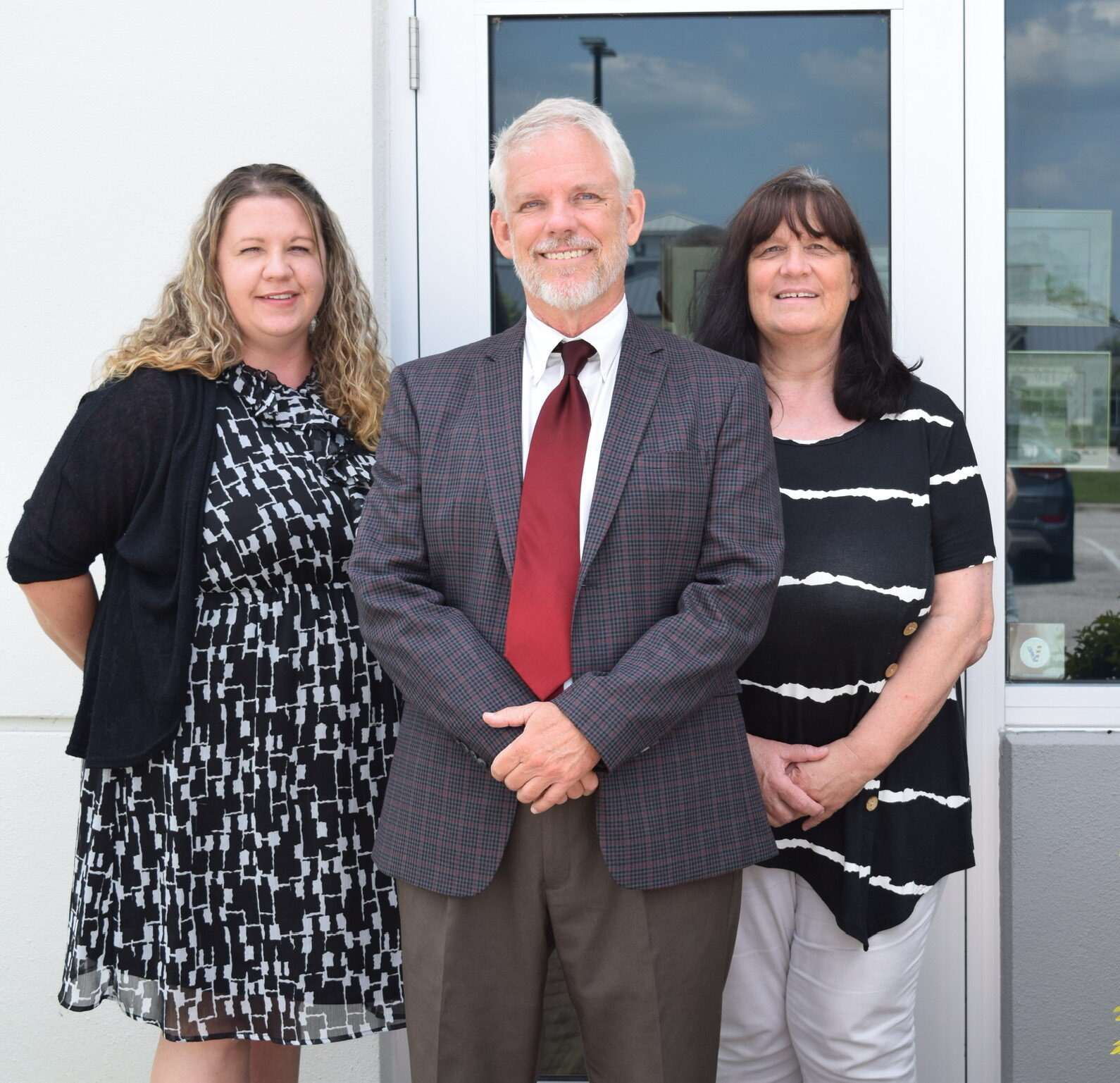
Or Call 941-365-2253 for a Free Consultation
NOTE: The use of the Internet or this form for communication with the firm does not establish an attorney-client relationship. Confidential or time-sensitive information should not be sent through this form.

